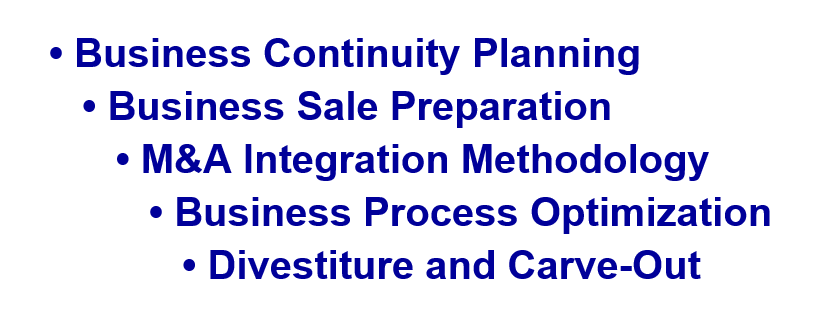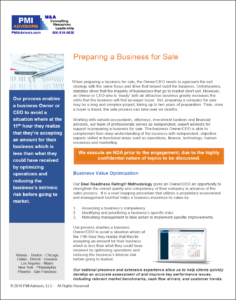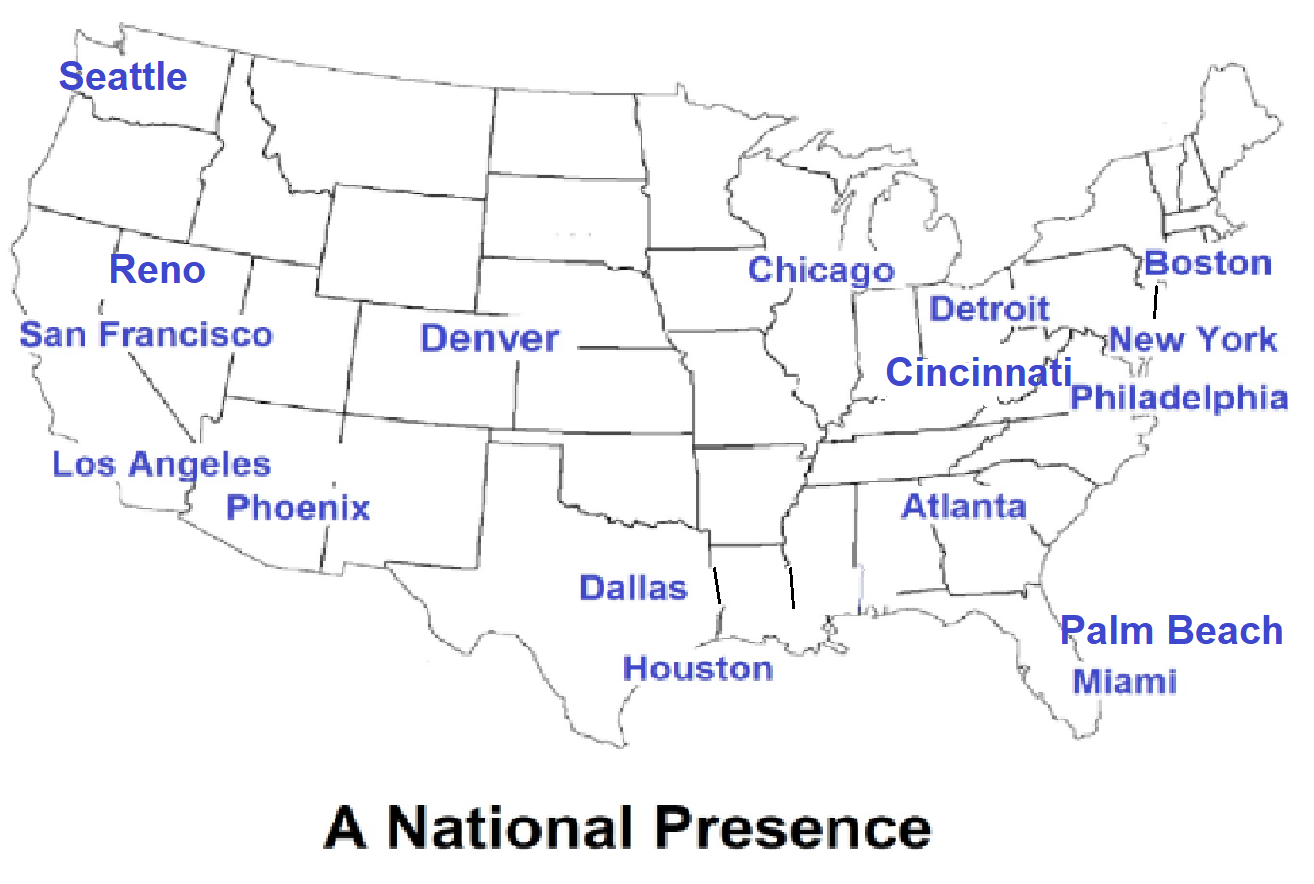Business Sale Preparation
Working with Business Owners/CEOs
before launching the sales process.

We Help Create, Protect and Optimize Enterprise Value.™
Preparing a Business for Sale
When preparing a business for sale, the Owner/CEO needs to approach the exit strategy with the same focus and drive that helped build the business. Unfortunately, statistics show that the majority of businesses that go to market don't sell, leaving those businesses without solid options. However, an Owner or CEO who is “ready” with an attractive business greatly increases the odds that the business will find a serious buyer. Yet, preparing a company for sale may be a long and complex project, taking up to two years of preparation. Then, once a buyer is found, the sale process can take over six months.
Working with these outside advisors, our team of professionals serves as independent, expert advisors for support in preparing businesses for sale.
• Accountants • Attorneys • Investment Bankers • Business Valuation Firms • Wealth Management Firms • Financial Advisors
Business Owners/CEOs are able to complement their deep understanding of their businesses with independent, objective experts skilled in functional areas such as operations, finance, technology, human resources, and marketing, to name few.
 Business Value Optimization
Business Value Optimization
Our Deal Readiness Rating® Methodology gives an Owner/CEO an opportunity to strengthen the overall quality and competency of their company in advance of the sales process. It is a road mapping procedure that utilizes a proprietary assessment and management tool that helps a business maximize its value by:
- Assessing a business’s competency across twenty functional categories, including planning, leadership, sales, marketing, people, operations, finance and legal.
- Identifying and prioritizing a business’s specific risks that are depressing value and obstructing long-term sustainable growth.
- Providing management with visibility into outcomes and return on investment (ROI) for any contemplated initiatives, motivating management to take action to implement specific improvements.
This process enables a business Owner/CEO to avoid a situation where at the 11th hour they realize that they’re accepting an amount for their business which is less than what they could have received by optimizing operations and reducing the business’s intrinsic risk before going to market.
Preparation Steps
Our Deal Readiness Rating® Methodology of an initial assessment, value creation, and risk mitigation positions the business for sale. Buyers, such as corporations, private equity firms, and family offices will quickly recognize any attempt to hide issues, conceal problems or quickly stage the business, so adequate preparation is essential. Below are the steps for preparing a business for sale:
- Conduct a Business Operations/Risk Assessment
- Prepare a Detailed Business Strategic Plan
- Determine a Range of Value
- Implement Action Plans to Optimize Value and Reduce Risks
- Project Manage the Optimization Process
- Consult an M&A Advisor or Investment Banker
- Compile Due Diligence Information
Buyer Options
When considering the sale of a business, a business Owner or CEO has a variety of transaction options to sell the business. These options should be understood by the Owners and Board of Directors, which could affect the price paid by the buyer. Types of external buyers generally break down to the following:
Financial Buyers. Financial buyers make up a large part of the buyer pool in middle market transactions. Financial buyers look for businesses they can buy using debt financing for 50% to 75% of the price. These buyers are also looking for sufficient cash flow to service that debt.
Strategic Buyers. Strategic buyers expect synergies with their other businesses. They buy companies that work within their future business plans. Sometimes strategic buyers pay a premium to get the clients or expertise of a company. On the other hand, buyers may not want to engage with strategic buyers who are competitors.
The options have pros and cons. Sellers often have a preference for the type of buyer they prefer, targeting their business to a particular buyer. An M&A advisor will work with the Owner/CEO to understand the selling requirements, the range of valuation expectations, and strategic goals. This also includes: recognizing the most appropriate types of acquirers; determining the timing of sale; identifying tax consequences and balancing the seller's desire for future involvement with the company.
A successful exit requires the navigation of new and highly complex legal and financial territories, while simultaneously running and improving the business for maximization of its value. Our national presence and extensive experience allow us to help clients quickly develop an accurate assessment of and improve key performance issues, including relevant market benchmarks, cash flow drivers, and customer trends.


